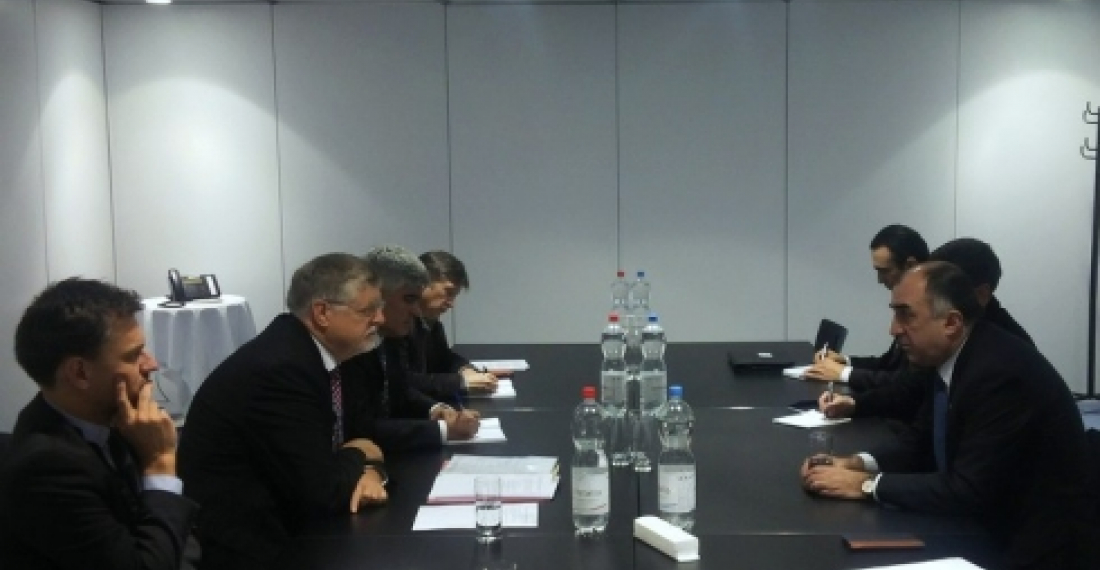The Foreign Minister of Azerbaijan Elmar Mammadyarov met on Friday (5 December) in Basel with the European Union Special Representative for the South Caucasus, Ambassador Herbert Salber. The meeting took place on the margins of the 21st Ministerial Council meeting of the OSCE that took place there on 4-5 December.
During the meeting the two sides exchanged views on a number of issues related to the current international and regional situation. The Azerbaijani Foreign Minister said that Azerbaijan already had a strategic relationship with a number of EU member states, and hoped that such a strategic relationship be established with the EU also, according to the Press Service of the Azerbaijani Foreign Ministry.
source:commonspace.eu with the Press Service of the Azerbaijani Foreign Ministry
photo: Azerbaijani Foreign Minister meeting the EU Special Representative for the South Caucasus in Basel on 5 December 2014. (picture courtesy of the Press Service of the Azerbaijna Foreign Ministry).







